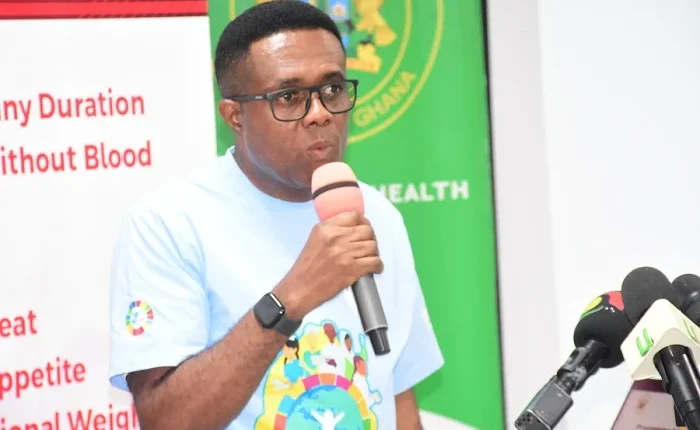GHS records 20,599 TB cases in 2024; 90% cured
Ghana recorded 20,599 tuberculosis (TB) cases last year, with over 90 per cent of diagnosed patients successfully treated and cured.
The milestone, which is the first in history for the country, also saw a decline in TB-related deaths to 5.1 per cent, a significant improvement from previous years where mortality rates ranged between eight and 10 per cent.
Dr Yaw Adusi-Poku, the Programme Manager of TB Control at the Ghana Health Service (GHS), disclosed this at the commemoration of World TB Day in Accra.
On the theme; “Yes we can end TB; Commit, Invest, Deliver” the day is marked to raise public awareness about the devastating health, social and economic consequences of TB as one of the deadliest infectious diseases and a global public health epidemic.
This year’s theme underscores the need to strengthen efforts at local, national and international levels to eradicate TB, particularly in combatting the growing threat of drug-resistant TB.
Dr Adusi-Poku, who attributed Ghana’s latest achievement to funding support from the Global Fund, however, noted that 24,000 adult TB cases and 3,500 paediatric cases were missed due to insufficient domestic resources to support TB detection and treatment.
“Our strategic plan is underfunded by 40 per cent. All the strategies we want to embark on to find the TB cases because we don’t have funds, we are unable to find all the cases.
More than 70 districts across the country have no geneXpert machines to detect TB. For paediatric TB, currently, only 77 facilities have digital x-ray machines and we need more commodities for this year and 2026,” he stated.
The Programme Manager indicated that although TB was highly treatable, most cases were found at late stages, calling for sustained funding from all stakeholders, particularly in improving diagnostic equipment to test for cases.
“TB is everywhere, epidemic is generalised and we all need to be part of it. Continued investment in programme implementation, research, and innovation is crucial to sustain gains made in the TB fight in Ghana,” he stated.
The Minister of Health, Kwabena Mintah Akandoh, said although Ghana had made significant progress in case detection, it still fell short of the World Health Organisation (WHO)’s target of detecting 44,000 TB cases annually.
“Too many cases remain undiagnosed, especially among children and as a government, we are committed to collaborate with all key stakeholders and partners to increasing funding for TB control activities,” he stated.
The Minister encouraged members of the public to desist from stigmatising TB patients, join awareness creation interventions and offer support to persons affected by the disease to reduce the burden in the country.
For his part, the Director-General of the GHS, Professor Samuel Kaba Akoriyea, disclosed plans by the Service to review the National Strategic Plan for TB in collaboration with the key stakeholders this year to align it with the 2030 Sustainable Development Goals (SDGs).
“This will ensure that we continue to provide the best available diagnosis and treatment options for TB management in Ghana while prioritising childhood TB and strengthening community-based care. Together, we can build a future where every breath is free from TB,” he said.
TB is a contagious airborne disease caused mainly by Mycobacterium tuberculosis, which most often affects the lungs.
It is spread through the air when people with lung TB cough, sneeze or spit. A person needs to inhale only a few germs to become infected.


